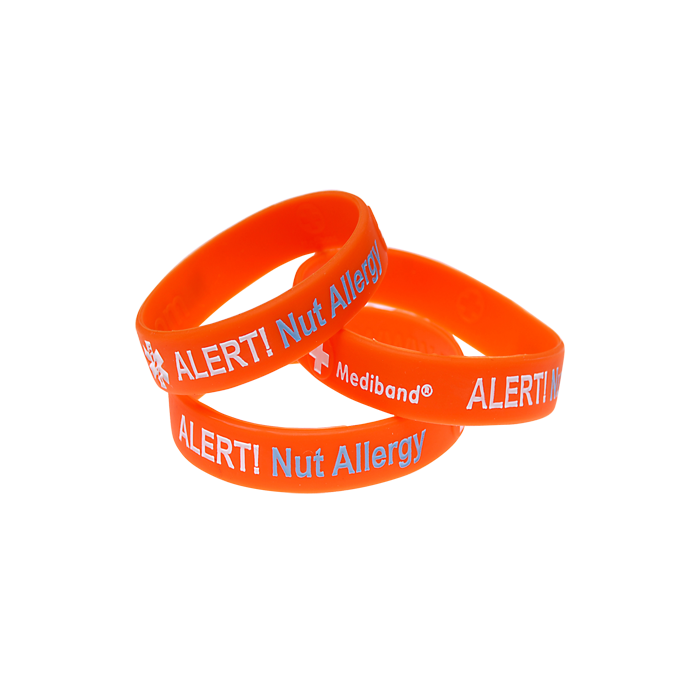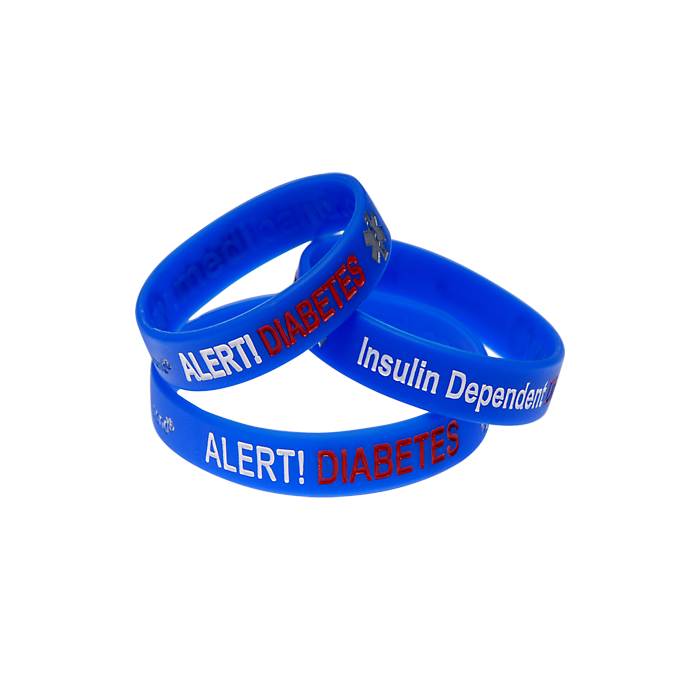Who should wear a medical alert bracelet?

Medical alert bracelets are designed to give health professionals vital information about a patient at a glance. This makes them a popular accessory for people living with health conditions who may be unable to communicate essential medical details in an emergency.
What's surprising is the number of people, affected by a wide range of issues, who can benefit from wearing medical ID.
In this article, we'll take a look at who should be wearing a medic alert bracelet, what information you can include and why it could save your life.
Medical ID for people with allergies

Allergies are commonplace in Australia. For example, according to the charity Allergy & Anaphylaxis Australia, up to 2% of adults and up to 8% of children under five years old suffer from a food allergy.
Medical ID can contain vital information about allergy triggers. Allergic reaction strike quickly and their severe form - anaphylaxis - can result in a medical emergency leaving you struggling to breathe and unable to communicate.
A medical ID accessory allows you to list your allergies so that your caregivers can treat your reaction and avoid triggering others. So if you have an allergic reaction to latex, they would know not to use latex gloves during treatment.
You can also include instructions such as “Give EpiPen” and your emergency contact details.
Med alerts for cancer patients
For people who are undergoing or have completed treatment for cancer, med alerts can carry vital information.
Certain cancers and their treatment regimes make you more vulnerable to lymphoedema, a condition causing swelling in your arms or legs. You can include information about your affected limb on your med alert bracelet so that emergency caregivers know to avoid procedures in that area.
You may also want to include information about any medication you are on and if you have had an organ removed as part of your cancer treatment.
Diabetes and medical ID

If you are living with diabetes, you will know that a diabetic emergency can happen suddenly and leave you in a vulnerable state.
Hypoglycaemia occurs when your blood sugar levels drop too low. You may feel dizzy, shaky or hungry, and in extreme cases, lose consciousness or go into a coma.
A medical ID bracelet can include your name, diagnosis, details of any medicine you are taking and an emergency contact number. All these things can help medical professionals make safe decisions about your healthcare.
IDs for people with epilepsy
When an individual has an epileptic seizure, they are in an extremely vulnerable state and will not be able to advocate for themselves.
It’s useful for an emergency responder to know that their patient has a history of seizures, as well as what kind of medication they are on and who their emergency contacts are.
Having access to these details can make a difference to your treatment and outcome, so wearing them on your medical ID is an essential part of everyday life.
Medical alert bracelets for heart conditions
If you have a heart condition such as high blood pressure, have a pacemaker fitted or are taking blood thinners, wearing a medical alert bracelet can bring you peace of mind.
In an emergency, it’s helpful to know that a person habitually has high blood pressure and that it may not necessarily be associated with the current situation.
If you take blood thinners, you’ll know you can’t mix them with certain other drugs. You can include your condition and medication on your alert bracelet so that if you are unable to speak for yourself, your caregivers can choose the safest treatment for you.
Medical IDs for people with cognitive and neurological disorders
Medical IDs are essential for anyone living with cognitive or neurological disabilities. If a loved one is suffering from a condition such as dementia and has memory loss, the information on an ID bracelet will be invaluable.
It can also help healthcare professionals know that their memory loss is already there and not necessarily a result of the medical emergency they are treating.
It’s not just dementia patients who can benefit from wearing medical alert bracelets. People with brain injury, stroke, Parkinson’s disease and multiple sclerosis can also enjoy peace of mind when wearing their medical ID.
Medical alert bracelets for chronic conditions
Lots of people live with chronic conditions day in and day out. These include bleeding disorders, asthma and hearing or visual impairment to name but a few.
Any chronic condition can influence the way care is given in an emergency setting, so wearing a medical alert bracelet will put your mind at rest and allow you to go about your everyday life worry-free.
Peace of mind for you and your loved ones
There’s no doubt about it, medical ID alert bracelets can ensure you or a loved one receives the right course of treatment in an emergency and provides a way to contact nearest and dearest at what can be a stressful time.
Mediband provides an emergency medical information service with ready-to-wear and custom engraved ID alert bracelets. These can be linked to a web-based medical database with additional information to use in an emergency.
Available in a range of colours and sizes, they are safe, look good and most importantly, provide peace of mind for you and your loved ones. Contact us to know more about our range.
